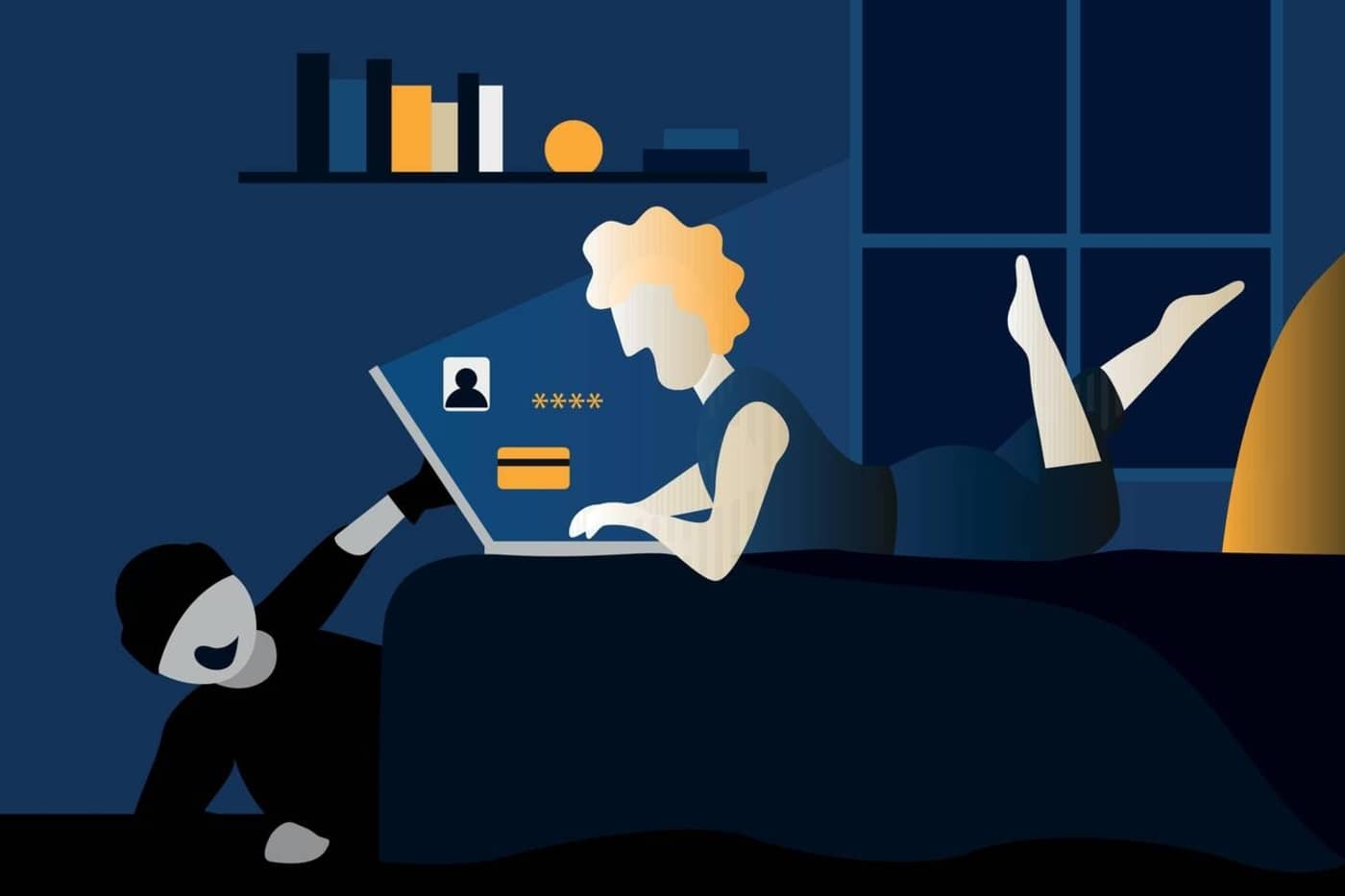Privacysavvy: Your Ultimate Guide To Mastering Online Privacy In Today's Digital World
Hey there, digital citizen! Listen up because this is important. In today’s wild west of the internet, being privacysavvy isn’t just a perk—it’s a necessity. Imagine your personal data floating around like confetti at a party you didn’t even know you were invited to. Not cool, right? But don’t sweat it. We’re here to break it down for you, step by step, so you can take control of your online presence and keep your info where it belongs: with you.
Being privacysavvy means more than just tweaking a few settings on your phone. It’s about understanding how your data is used, who has access to it, and what you can do to protect yourself. Think of it as your personal armor in cyberspace. And trust me, you’re gonna need it. Whether you’re scrolling through social media or making online purchases, your digital footprint is growing faster than you think. So, let’s dive in and make sure you’re covered.
Now, before we get into the nitty-gritty, let’s set the stage. This guide isn’t just another boring article filled with tech jargon. Nope. We’re talking real talk here—tips, tricks, and strategies that actually work. By the end of this, you’ll be ready to face the digital world with confidence, knowing you’ve got your privacy locked down tight. Let’s roll!
- Rockautocom Your Ultimate Destination For Auto Parts And Accessories
- Level Up Your Gaming Experience With Gamenora
What Does It Mean to Be Privacysavvy?
Alright, let’s start with the basics. Being privacysavvy means having a solid understanding of how your data is collected, used, and shared online. It’s like knowing the rules of the game before you step onto the field. And trust me, the game is intense. Companies are constantly vying for your attention—and your data—and they’re getting pretty good at it.
Here’s the thing: your data is valuable. Super valuable. And if you’re not careful, it can end up in the wrong hands. From targeted ads to identity theft, the risks are real. But being privacysavvy isn’t about living in fear. It’s about empowering yourself with knowledge and tools to stay safe. Let’s break it down:
- Understanding Data Collection: Ever wonder why you see ads for that pair of shoes you were just browsing? Yeah, that’s data collection in action. Companies track your activity to serve you personalized ads. Knowing how this works is the first step in taking control.
- Safeguarding Personal Information: Your name, email, phone number, and even your location can be tracked online. Being privacysavvy means knowing how to protect this info from prying eyes.
- Using Technology Wisely: From strong passwords to two-factor authentication, there are plenty of tools at your disposal to boost your online security. It’s all about using them the right way.
Why Is Privacy Important in the Digital Age?
Let’s get real for a second. Privacy isn’t just some buzzword thrown around by tech experts. It’s a fundamental right, and in today’s digital landscape, it’s under constant threat. Think about it. Every time you log into an app, create an account, or even just browse the web, you’re leaving a trail of data. And that data can be used against you in ways you might not even realize.
- Manhuascan Your Ultimate Guide To Dive Into The World Of Manhua
- Mangabat The Ultimate Guide To Understanding And Exploring Its Wonders
Here’s a scary fact: according to a report by the Identity Theft Resource Center, there were over 1,800 data breaches in 2022 alone. That’s a lot of personal information out there for the taking. But here’s the kicker: many of these breaches could have been prevented with better privacy practices. Being privacysavvy isn’t just about protecting yourself—it’s about protecting others too. After all, your data isn’t just yours; it’s connected to everyone you interact with online.
Key Stats on Data Privacy
Want some numbers to back this up? Check this out:
- Over 40% of consumers say they’ve experienced some form of identity theft.
- Average cost of a data breach in 2022: $4.35 million.
- More than 60% of companies don’t have a proper data breach response plan in place.
See what I mean? This isn’t just a small issue. It’s a big deal that affects everyone. But the good news is, you can do something about it. By becoming privacysavvy, you’re not just protecting yourself—you’re setting an example for others to follow.
Top 10 Tips for Being Privacysavvy
Alright, let’s get practical. Here are ten actionable tips to help you become a true privacysavvy pro:
- Use Strong Passwords: Ditch the “password123” and opt for something stronger. Mix it up with letters, numbers, and symbols.
- Enable Two-Factor Authentication: It’s like having a second lock on your front door. Adds an extra layer of security.
- Be Mindful of What You Share: That vacation selfie? Cool. But do you really need to share your exact location? Probably not.
- Read Privacy Policies: Yeah, they’re long and boring, but they’re important. At least skim them to know what you’re agreeing to.
- Limit App Permissions: Does that weather app really need access to your contacts? Probably not.
- Use a VPN: Especially when using public Wi-Fi. It encrypts your data and keeps it safe from prying eyes.
- Keep Software Updated: Those annoying updates? They often include security patches to keep you safe.
- Avoid Clicking Suspicious Links: If it looks too good to be true, it probably is. Don’t fall for phishing scams.
- Monitor Your Credit Report: Regularly check for any suspicious activity that could indicate identity theft.
- Educate Yourself: Stay informed about the latest privacy trends and threats. Knowledge is power.
Understanding Privacy Policies: What to Look For
Privacy policies can be a real snooze fest, but they’re crucial. They outline how a company collects, uses, and shares your data. Here’s what you should look for:
- Data Collection: What info do they collect, and how do they get it?
- Data Usage: How do they use your data? Is it for marketing purposes, or something else?
- Data Sharing: Do they share your info with third parties? If so, who?
- Data Retention: How long do they keep your data? Is there a way to request deletion?
Remember, if a policy seems unclear or overly broad, that’s a red flag. Don’t be afraid to ask questions or seek clarification. Your privacy is worth it.
Common Privacy Policy Terms
Here’s a quick cheat sheet of common terms you might encounter:
- personally identifiable information (PII): Info that can be used to identify you, like your name or Social Security number.
- Cookies: Small files that track your activity on a website.
- Third-party sharing: When your data is shared with other companies.
- Opt-out options: Ways to stop a company from collecting or using your data.
How to Protect Your Privacy on Social Media
Social media is a double-edged sword. On one hand, it’s a great way to connect with friends and share your life. On the other hand, it’s a goldmine for data collectors. Here’s how to stay privacysavvy on your favorite platforms:
- Adjust Privacy Settings: Most platforms let you control who can see your posts, photos, and other info. Take advantage of these settings.
- Limit Personal Info: Don’t share more than you need to. Your address, phone number, and birthday don’t need to be public knowledge.
- Be Wary of Quizzes and Games: Those fun quizzes that promise to tell you your “true soulmate” are often just data collection tools in disguise.
- Use Ad Preferences: Most platforms let you control the types of ads you see. Use this to limit targeted advertising.
Popular Social Media Platforms and Their Privacy Features
Here’s a quick rundown of some popular platforms and their privacy features:
- Facebook: Offers detailed privacy settings, including audience controls and ad preferences.
- Instagram: Allows you to make your account private and control who can see your posts.
- Twitter: Offers privacy settings to control who can see your tweets and follow you.
- LinkedIn: Provides privacy controls for your profile and network activity.
The Role of Technology in Privacy Protection
Technology can be both a blessing and a curse when it comes to privacy. On one hand, it gives us access to incredible tools and resources. On the other hand, it can be a major threat to our personal information. But the good news is, there are plenty of tech solutions to help you stay privacysavvy:
- Encryption: Scrambles your data so only authorized parties can access it.
- Ad Blockers: Prevents ads from tracking your activity across the web.
- Privacy-Focused Browsers: Like DuckDuckGo and Brave, which prioritize user privacy.
- Secure Messaging Apps: Like Signal and WhatsApp, which offer end-to-end encryption.
Emerging Privacy Technologies
Here are a few emerging technologies that could change the privacy game:
- Zero-Knowledge Proofs: Allows you to prove something without revealing any underlying information.
- Decentralized Identity: Gives you control over your own identity and data.
- Homomorphic Encryption: Lets you perform computations on encrypted data without decrypting it first.
Legal Protections for Your Privacy
There are laws in place to protect your privacy, but they vary by country and region. Here are a few key ones:
- GDPR (General Data Protection Regulation): Protects the privacy of EU citizens and regulates how companies handle their data.
- CCPA (California Consumer Privacy Act): Gives California residents more control over their personal information.
- COPPA (Children’s Online Privacy Protection Act): Protects the privacy of children under 13 in the US.
Knowing your rights under these laws can empower you to take action if your privacy is violated. Don’t hesitate to exercise your rights and hold companies accountable.
How to File a Privacy Complaint
If you believe your privacy has been violated, here’s how to file a complaint:
- Contact the Company: Start by reaching out to the company directly. They may have a process in place for addressing privacy concerns.
- File with a Regulatory Agency: Depending on your location, you can file a complaint with agencies like the FTC in the US or the ICO in the UK.
- Seek Legal Advice: If the issue isn’t resolved, consider consulting a lawyer who specializes in privacy law.
Conclusion: Take Control of Your Privacy Today
And there you have it, folks. Being privacysavvy isn’t just a nice-to-have skill—it’s a necessity in today’s digital world. From understanding data collection to using the right tools and technologies, there’s plenty you can do to protect yourself online. So, don’t wait. Take action today and start securing your digital future.
But here’s the thing: this isn’t a one-time fix. Staying privacysavvy requires ongoing effort and education. Keep yourself informed, adapt to new threats, and don’t be afraid to speak up when your rights are violated. Your privacy is worth it.
Now, it’s your turn. Share this article with your friends, leave a comment, or check out our other guides on digital security. Together, we can create a safer, more private online world. So, what are you waiting for? Get out there and be privacys
- Wcostream Your Ultimate Streaming Haven For Anime Enthusiasts
- Moviesjoy The Ultimate Destination For Movie Enthusiasts

PrivacySavvy

Privacy news, guides, VPN and other security software reviews

Privacy news, guides, VPN and other security software reviews